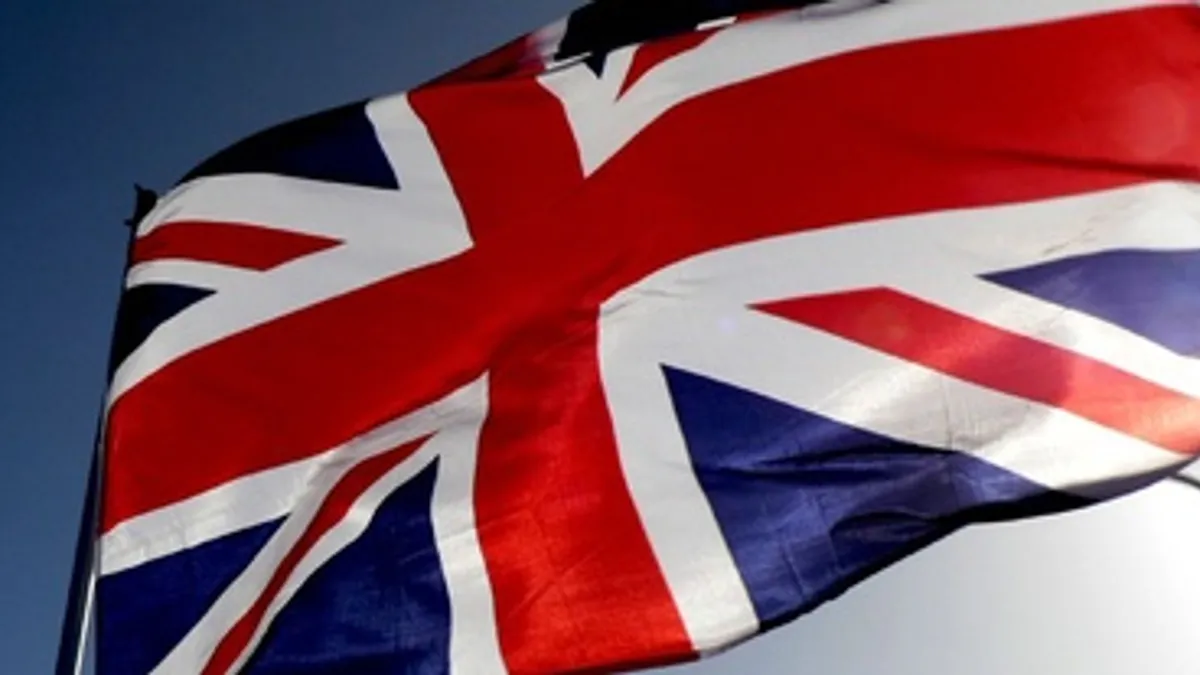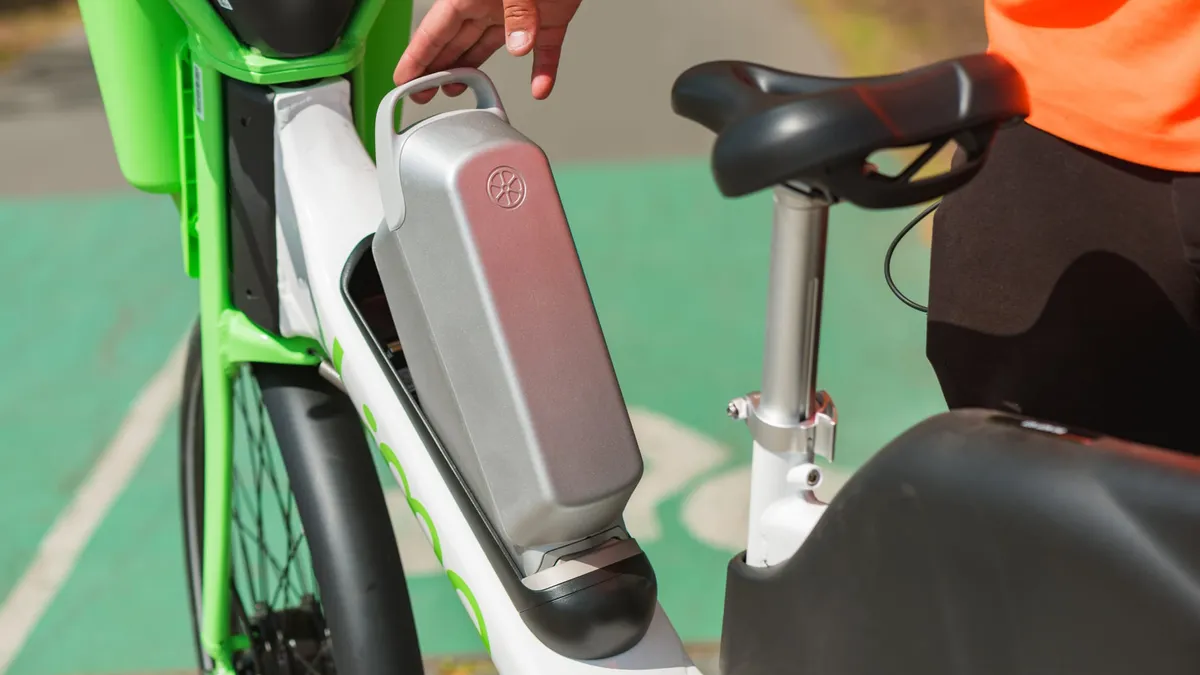The issue of single-use plastics continues to dominate political and corporate agendas across the UK. The past 12 months have seen a plethora of regulatory proposals and brand commitments to ban, tax or phase out totemic items such as straws, cotton buds and coffee cups. Wider agreements such as the Commonwealth Clean Oceans Alliance and G7 Ocean Plastics Charter are also gaining momentum.
These efforts are being promoted as viable solutions to tackle marine litter and more specifically, ocean plastics. But some UK waste experts have questioned this and suggested there are far bigger issues at play — one being the weak regulations on exported plastic scrap.
"Whilst we do have a litter problem and that extends to coastlines, as a proportion of the total amount of waste entering the sea, it is tiny compared to what comes out of Africa, Asia and South America," Phil Conran, director at 360 Environmental, told Waste Dive.
Conran said the U.K. should take a global view and consider where as an island nation it is contributing most to ocean litter. "The scale of that contribution is greater through what we are exporting to countries who are not properly controlling it."
Export woes
The issue is being brought into sharp focus as exporters bear the brunt of China's scrap import policies. In 2017, the UK exported around 164,000 metric tons of plastic scrap to China; this year's data is still being collected, but from January through April 2018 just 2,500 metric tons were shipped to China compared to nearly 88,000 metric tons during the same period in the previous year — a 97.2% drop.
Concerns are growing that exports of low-grade plastics will get diverted to other Asian or Eastern European countries that lack the infrastructure to deal with them. "If you look at the list of countries we are exporting to, it's clear that some of them are struggling to cope with the volumes. We are seeing a much greater risk then of material not being recycled," said Conran.
From a U.K. perspective, poorly sorted exported plastics count as being recycled unless classified as non-recyclable plastics for refuse-derived fuel. According to Jessica Baker, managing director of Chase Plastics, this is despite there being "no effective audit on what happens to the exported weight at the final reprocessing stage — no effective check on yields or on the material that doesn't get recycled."
Once containers leave the port, it's a case of ‘out of sight, out of mind,’ making it easy to overlook the fact that some of these materials could end up as marine debris. Keith Freegard, a consultant for Axion Recycling, estimates 15-30% of UK exported plastic waste doesn't get recycled, and has questioned where those rejected materials end up. "What is the preferred method of disposal? Is it left in a pile, set fire to because it's a source of energy or chucked in a river? There’s a dearth of hard evidence here."
Better data reporting and traceability would help to shed some light on these issues not just for the U.K., but for other big exporters of scrap plastics such as the U.S. Under the Transfrontier Shipment of Waste Regulations (TSWR), British exporters have to complete an Annex VII form for non-hazardous 'green list' waste allowed under Article 18 controls and have a contract in place with the destination site.
Conran described the Annex VII as a passive document, explaining that once sent out with the shipment it often gets lost or soaked though and is unreadable. "If waste then gets to a country, is unloaded and deemed to be unfit, there has often been a problem of knowing who consigned it."
A significant amount of exported plastic scrap would fail TSWR quality requirements if containers were checked, Conran added. He points out that 'green list' exporters have no legal requirement to submit documentation and, consequently, there is little information available to enforcement agencies before material is exported. "The system doesn't capture any detail about the quality of material that's being exported or the potential losses that could come out of it from not being recycled overseas."
Freegard has heard anecdotal reports of UK waste producers of low grade mixed plastics now paying shipping companies. He questioned: "If you've got to pay a gate fee to put your material in a container, what does that tell you about the likelihood of being able to recycle a high percentage of quality material from it?"
Domestic duty
Rather than continue to send poorly sorted plastics overseas, the UK could instead look to invest more in its reprocessing capabilities and stimulate domestic markets by encouraging the use of recycled content in plastic goods and packaging. The Department for Environment, Food and Rural Affairs is set to unveil a new resources and waste strategy for England this fall. Jacob Hayler, executive director at the Environmental Services Association, said this strategy could provide the impetus.
"We'd like to see recycled content targets placed on manufacturers with fiscal penalties for products and packaging that fail to meet those targets," he said, adding that producer responsibility reform — most notably the UK's Packaging Waste Recovery Note (PRN) system — would be required to complement any targets.
This is likely given that the European Commission has introduced new requirements on producer responsibility schemes for member states. Under its Circular Economy Package, waste producers will have to bear the full costs of collecting and sorting material for recycling. Just last week, the U.K. Government indicated in its Brexit White Paper that it will not regress on existing EU waste management regulations once it leaves the EU.
"Our existing PRN system doesn't anywhere near recover full costs. The estimate is it’s around 10% of costs, so we need a new scheme. That scheme needs to inject more funding into the system and provide more stability for investment in recycling," said Hayler. Any reform of the PRN system would likely need to be supported by further regulatory measures to ensure supply chain demand for recycled plastics. These might include statutory targets on manufacturers to use recycled content or taxes on virgin plastics.
The way forward
But if manufacturers are to specify more recycled plastic in their products and packaging, technical challenges must be addressed. There are trade-offs between higher rates of recycled content and performance, especially for consumer goods companies. More R&D will be required to perfect techniques that can harvest low grade plastic recyclate for chemicals processing to produce 'virgin-replacement' quality resins.
The Ellen MacArthur Foundation notes chemical recycling offers potential to upcycle trickier plastic packaging such as laminates. Partnerships between waste companies and plastics suppliers are springing up to explore such opportunities, the LyondellBasell-Suez and Agilyx-INEOS Styrolution joint ventures being two examples.
Developments such as the UK Plastics Pact should mean this focus on innovation won't detract from efforts to curb plastic use. The rise of plastic offsetting schemes, while not strictly focused on prevention, will increase demand for greater disclosure and help underline brand commitments to phase out single-use plastics.
Post-Brexit, there's also an opportunity for the U.K. to move away from EU weight-based recycling targets and consider new metrics. Metrics focused on carbon or lifecycle analysis could be used to remove energy-rich materials such as plastics from residual waste streams, while encouraging better end-of-life considerations from the outset.





















